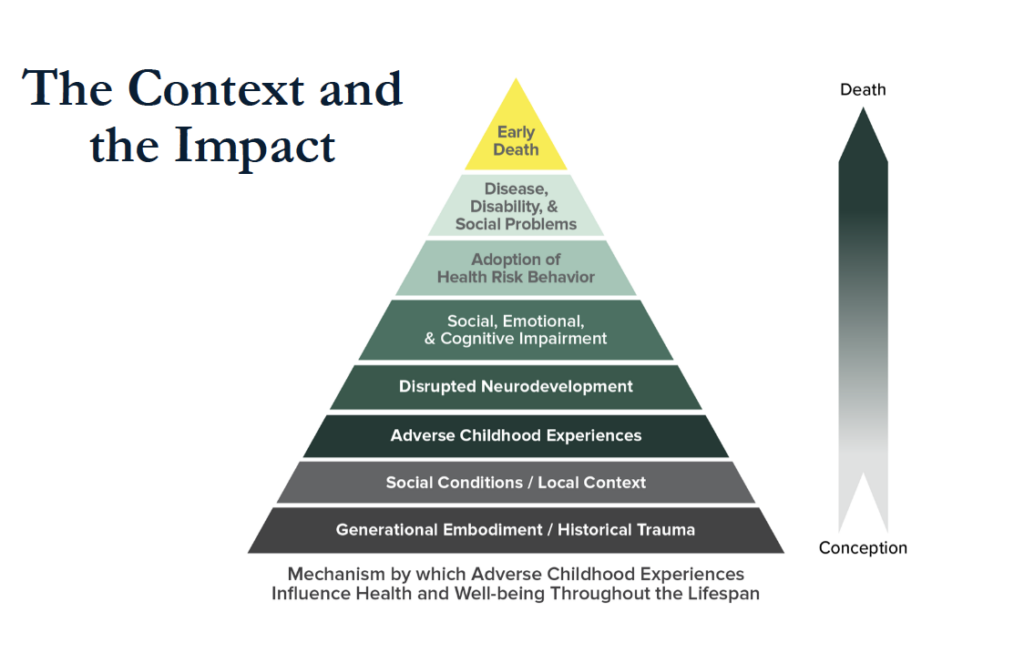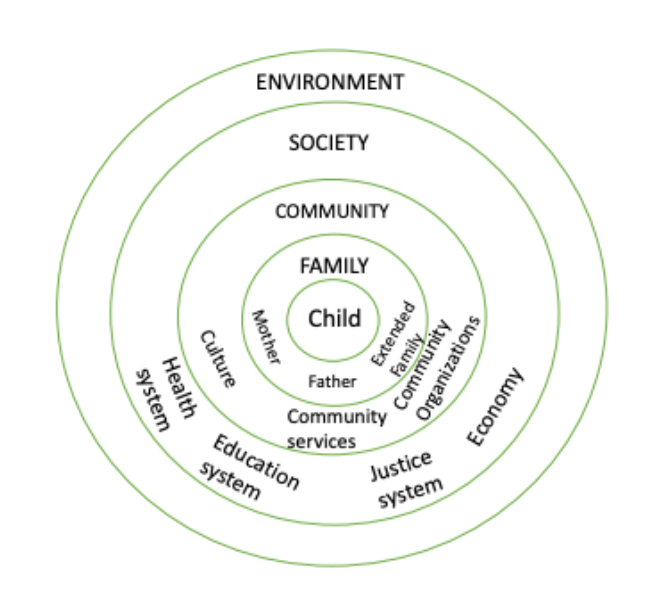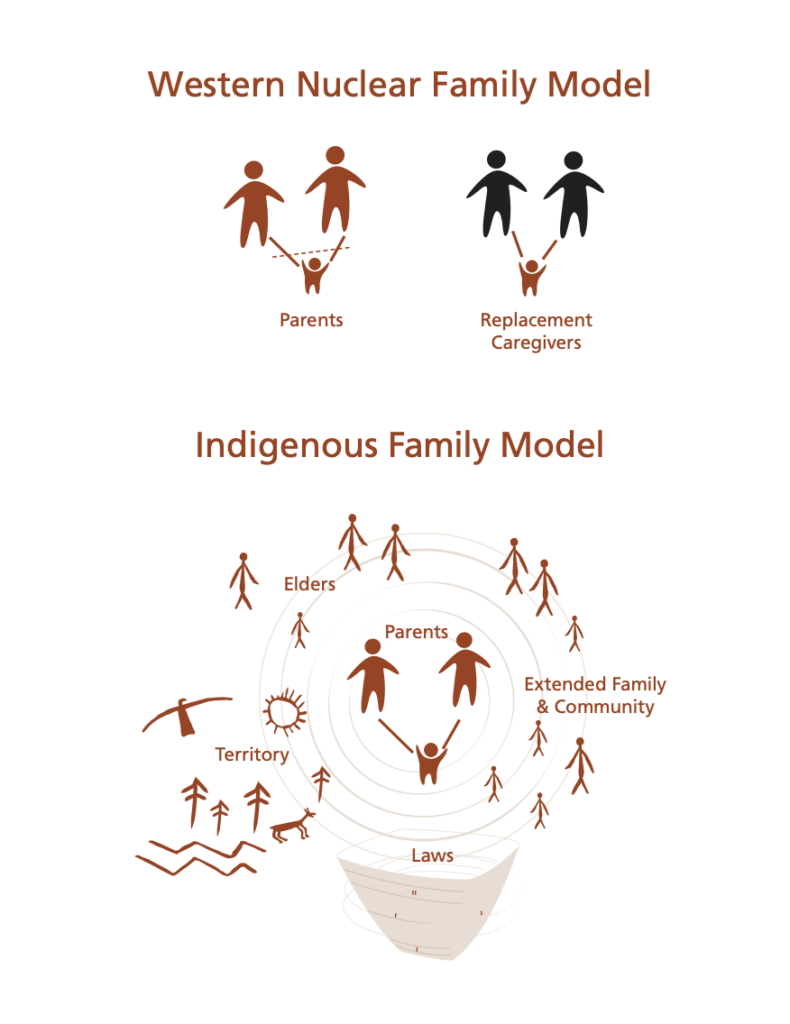Transform the Family Justice System
the (TFJS) Collaborative
The Transform the Family Justice System (TFJS) Collaborative is a multi-sectoral initiative, led by Access to Justice BC, to transform the family justice system by focusing on family well-being.
It seeks to address collaboratively the public health crisis of the immediate, long-term and intergenerational impacts of Adverse Childhood Experiences (ACEs). Many children in families with family justice issues are experiencing more than one ACE, and in many situations, the traditional adversarial court process escalates conflict and exacerbates the impacts of ACEs.
The work of the Collaborative is to align and coordinate complementary efforts, across and beyond the justice sector, directed at redesigning the family justice system so that children, youth and families are in the centre, and are part of the redesign process.
Find out more about the Transform the Family Justice System Collaborative and support us.
Chief Justice’s Family Justice Blog Posts
In December, I blogged about aspiring to be a butterfly rather than a cautious caterpillar in choosing to transform the…
“We have arrived at that point in history where we need to make an intentional choice: do we continue to…
At the most recent meeting of the A2JBC Leadership Group on October 30, 2019, I was grateful for the opportunity…
The Canadian Forum on Civil Justice recently released a report evaluating different dispute resolution methods in family law matters. The…
Last week I had the opportunity to meet with lawyers from the Child and Youth Legal Centre, launched earlier this…
The Why: What brain science tell us
Research on how brains are built tells us that toxic stress and childhood trauma can have disastrous immediate, long-term and intergenerational impacts on children and families.

“Resilience”, inherent in everyone, helps children, youth and adults cope with stress and trauma. Adults, who themselves have experienced the impact of trauma, need support to help them minimize the impact of trauma on their children.
To promote child and family well-being, we – as a society - need to find ways to reduce the toxic stress, enhance resilience and support families going through these traumatic life experiences.
Read more on the Brain Science
The What: A shift from doing unintentional harm to promoting family well-being
Access to justice is not just about improving access to courts or lawyers. It is about creating the conditions that allow all people to live a good life. The justice sector cannot do that on its own; but it has a part to play in promoting the well-being of the people it serves.
Parental separation and divorce, family dysfunction, domestic violence are all Adverse Childhood Experiences that are subject to the family justice system. Looked at from the perspective of families, legal issues are secondary to their social, relationship, parental and financial issues.
The family justice system - through its adversarial-based processes and culture, and its siloed focus on legal solutions - unwittingly increases toxic stress for family members and misses opportunities to promote family well-being.
By shifting the perspective FROM a justice system that has courts as the focal point TO one that has children, youth and families at the centre, the family justice system can transform itself into a system that does no harm and promotes family well-being.
Vision: a family justice system that, together with other societal systems, supports children, youth and families
Goal: child, youth and family well-being
The Family Justice Collaborative will seek to achieve this shift in thinking and place the family justice system alongside other societal systems as part of an ecosystem that supports children, youth and families to live a good life.
Read Nancy Cameron’s keynote speech on why we need to transform the family justice system, presented to the November 2020 Colloquium on Transforming the Family Justice System.
Watch the video of Chief Justice Bauman’s conversation with Nancy Cameron.
The How: “Highly aligned and loosely coupled” activities
To reach the goal of a transformed family justice system, focused on achieving family well-being, requires many people and organizations aligning around common strategic objectives, engaging in activities directed at those objectives and assessing success by using shared measures. Through the use of a strategy mapping approach, the Transform the Family Justice(TFJS) Collaborative will create the necessary framework and backbone support for this collective effort.
Read more about using a strategy map framework for the TFJS Collaborative.
View the High Level Transform the Family Justice System Strategy Map.
An Indigenous Lens
In taking a family-focused approach to transforming the family justice system, BC is fortunate to be able to learn from the traditional approaches of its Indigenous peoples. Indigenous perspectives on child and family well-being are based on a different model than the nuclear family model that drives Western thinking.

Community, culture and land are central to the well-being of Indigenous families. Colonialism and Canada’s Residential Schools policy have resulted in historical trauma that has had intergenerational impact on Indigenous children, youth and families. Promoting family well-being for Indigenous peoples in BC requires a community-based approach.
Achieving the goal of family wellbeing in the BC family justice system will only happen if the justice sector follows the lead of Indigenous peoples and communities, and acts in support of their efforts.
Read more on the Working Group Report Recommendation #3: Invite Indigenous leaders to co-develop an Indigenous family justice strategy, with A2JBC in the context of the TFJS Collaborative
Join Us:
Invitation to participate: If you are inspired to be part of the TFJS Collaborative, contact us at contact@accesstojusticebc.ca. We are looking for:
- Family members (adults, children and youth) with lived experience in the current family justice system who are motivated to help change it – We want to learn from your experience.
- Family law lawyers, mediators, judges and other justice sector service providers – We know that you feel the stress of being involved in a system that is not working for the people you are in it to serve. You can help change it by sharing your experiences and insights, by making shifts in your practice and by participating in the Collaborative.
- Leaders of justice sector organizations that are already working at improving the family justice system for children, youth and families – We want to build on what you are already doing and link you to others who might help you achieve your goals. Tell us your stories of the work you are already doing
- Indigenous justice and community leaders - We want to work alongside you and support your efforts to achieve family well-being for Indigenous peoples in the BC family justice system
- Organizational leaders and professionals from other sectors – We want to explore with you how we can work together to transform the family justice system so that it does no harm and positively impacts family well-being.

